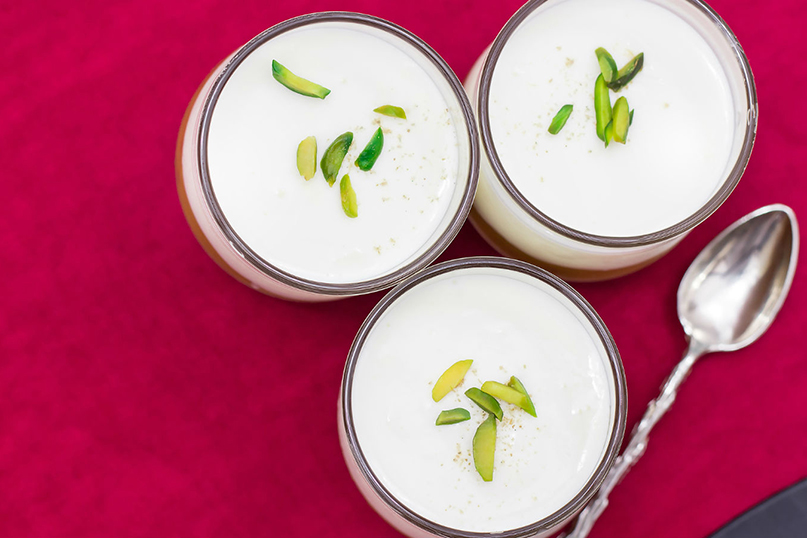
By Leah Koenig
A
cross the Jewish diaspora, Shavuot is known as the holiday on which we eat dairy foods. But there is another ingredient associated with Shavuot that, while less familiar to Ashkenazi Jews, has a long and storied history in Sephardic Jewish cuisine: rosewater.
As Shavuot is an agricultural holiday, it must have seemed natural to include plants and flowers in the celebration. And falling as it does in late spring, it is a time when trees and flowers are in full bloom. As a result, since at least as far back as the Middle Ages, many Jewish communities have decorated their homes and houses of worship – and even Torah scrolls – with greenery and flowers on Shavuot.
Roses have always been among the preferred flowers for these decorations. In the Middle East, roses were not only used as decoration on Shavuot, but they were also used to flavor holiday foods. Gil Marks notes in The World of Jewish Cooking that “Middle Eastern Shavuot fare is frequently flavored with rosewater, and rose petal preserves are commonly served with the meal.” For example, one of these traditional holiday foods, enjoyed by Jews from Syria to Turkey, is a rice pudding flavored with honey and rosewater.
Malabi – the creamy, milk-based pudding perfumed with rosewater – is one of the most popular desserts across the Middle East. According to Janna Gur’s The New Book of Israeli Food, the recipe originally hails from Turkey. In some Sephardic homes malabi is traditionally served to break the fast on Yom Kippur, at Turkish Jewish weddings to symbolize the couple’s sweet life ahead, and during Shavuot – and not simply because it is milk-based. “Rosewater…is a popular flavoring on Shavuot among Sephardim, who call the holiday ‘the Feast of Roses,’” writes Marks.
The traditional recipe relies on rice flour (made from rice crushed with a mortar and pestle) to thicken the milk. Today, however, many cooks substitute cornstarch, which yields a silky texture without any trace of graininess. Doused in sweet raspberry syrup, or topped with chopped pistachios, malabi makes the perfect ending to a Mediterranean-inspired meal.
Ingredients:
Chopped pistachios for garnish
1/3 cup sugar
1/2 teaspoon vanilla extract
4 cups milk
1/2 cup cornstarch
1 Tablespoon rosewater
Raspberry syrup (optional)
Directions:
In a medium bowl, mix one cup of milk with the cornstarch, rosewater, and vanilla until the cornstarch dissolves; set aside. Bring remaining milk and sugar to a simmer in a saucepan over medium heat, stirring constantly. Lower the heat, pour in the dissolved cornstarch mixture and cook 8-10 minutes, stirring constantly, until the mixture begins to thicken.
Remove from the stove and pour into serving dishes. Cover with plastic wrap and allow to cool to room temperature; then refrigerate for at least 4 hours. Serve topped with the chopped pistachios and raspberry syrup, if desired.







 Southern New England Jewish Ledger
Southern New England Jewish Ledger











